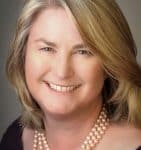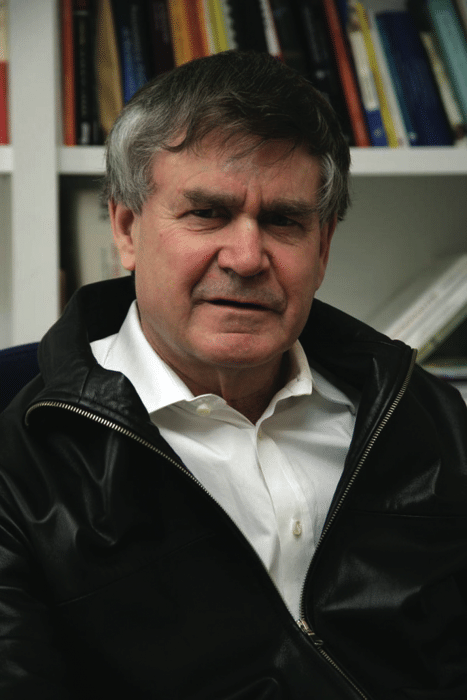
Tanya Breen
30 May 2017 – Listening to the opinions of autistic people has taken on a new life prompting Waikato consultant clinical psychologist Tanya Breen to ask and answer: what are critical autism studies?
CRITICAL AUTISM STUDIES is a relatively new field of scholarly thought that originated in 2010 (O’Dell, Bertilsdotter Rosqvist, Ortega, Brownlow, & Orsini, 2016).
Proponents of critical autism studies are concerned with making a positive difference in the life experiences of autistic people.
The three main components of this interdisciplinary approach are:
- Scrutiny of the power relationships within the autism research and practice.
- The promotion of positive accounts of autism that confront the prevailing negative views that influence how autism is considered by the public, addressed by government, and represented by the media.
- The development of research methods and theoretical approaches to autism study that are inclusive and valuing (Davidson & Orsini, 2013).
Critical autism studies is not the sole preserve of the academic community. The values of critical autism scholars are shared by many autism advocacy and self-advocacy networks (O’Dell et al., 2016).
Philosopher Ian Hacking and Looping
Central to critical autism studies is the work of Canadian philosopher Ian Hacking. When considering the classification and categorisation that happens to people who are different, Hacking formulated the notion of ‘looping’, a process that transforms both the classifications/categories, and the people defined by them (O’Dell et al., 2016).
Hacking described 10 looping stages:
- counting, when the focus is on identifying how many people fit into the category
- quantifying, which focuses on developing or changing diagnostic criteria
- norming, against which categorised people are measured
- correlating, when even unrelated factors are correlated with the category
- medicalising, when the labelled people are defined as ill or disordered
- biologising, the search for biological causes
- geneticising, the search for genetic explanations
- normalisation, implementing treatments and interventions designed to make the categories people as normal as possible
- bureaucratising, consisting of state implemented systematic strategies of diagnostic surveillance and intervention
- the final stage of resisting, when the people who are classified reclaim control back from the experts and institutions, and in doing so sometimes create new experts and institutions (Hacking, 2002, 2006).

Ian Hacking
Hacking has also considered autism specifically (Hacking, 2009a, 2009b, 2009c, 2010). Of relevance is Hacking (2009b), has which emphasised the value and importance of listening to the opinions of autistic people. Hacking (2009b) suggested that through autobiography, autistic people were challenging what non-autistic people think they know about autism, and were developing language to “describe experiences for which there is little pre-existing language” (p. 1467).
An example of Looping using the New Zealand context
There are numerous examples of looping in autism in New Zealand, but to illustrate, I will mention one: the counting-quantifying-realising loop. As many people know, formal classifications of autism by the American Psychiatric Association and the World Health Organization (the DSM and ICD diagnostic systems respectively) have changed significantly since autism was first described, and New Zealand is unique in that we have another definition, that used in the New Zealand Autism Spectrum Disorder Guideline (Ministries of Health and Education, 2016). With each change of diagnostic criteria, what is and is not the ‘official’ version of autism changes. These changes can be experienced as very threatening to previously diagnosed people (and their families), not the least because diagnosis impacts on self-identity, place in the autistic community, and eligibility for support. Contributing to the problem, to plan services, the Ministry of Health and other organisations need to estimate demand (requiring them to “count”).
However, it is difficult do this when the definition of what is to be counted changes. Furthermore, whilst diagnosis was initially driven by medical professionals wanting to quantify autism, changes in how autism is defined are also now driven by the lived and reported experience of autistic people (i.e., the inclusion of sensory issues in the DSM-5 diagnostic criteria is a case in point). This has also changed the counting and the quantification.
In addition to complicating service provision, the changing understanding of what autism is, caused by looping, underlies a source of tension in autism in New Zealand – namely the debate about who is autistic, and who has the right to speak on behalf of non-verbal autistics.
Interesting Research
Some research and articles using the critical autism approach that I have found interesting include:
- In Sweden, humour and joking were investigated by a researcher who joined a class of 10 students with Asperger syndrome, aged between 20 to 50 (Bertilsdotter Rosqvist, 2012). Probably not surprising to the autistic community, the researcher found that joking and humour was common. However, this finding seriously challenges the neurotypical and medical view that autistic people don’t understand and use humour.
- In Canada, applied behaviour analysis (ABA), an intervention commonly used with autistic children, was investigated (Gruson-Wood, 2016). The focus was on the experience of being trained to be an applied behaviour analyst. The researchers summarised some of the controversy about ABA that occurs within the autistic community, including the concern that autistic children are subjected to intensive surveillance and repetitive demands. They found that trainee applied behaviour analysts were subjected to very similar (even the same) processes, with positive and negative effects. Interestingly, the researchers described good therapists as those who became “docile”, and who demonstrated masculine objectivity.
- Self-diagnosis of autism was considered by one US researcher (Sarrett, 2016), in particular, the controversy about self-diagnosis that exists within the online autism community, Wrong Planet. The researcher engaged in online conversations with autistic people, and discovered that whilst the autistic community promote the notion of autists as autism experts, there was heated debate about whether full membership of the autistic community required formal diagnosis by a medical or psychiatric professional. This was further complicated by the lack of confidence that many autistic people had in the diagnostic skills of the medical and psychiatric professionals.
Thoughts on Critical Autism Studies and the 2017 Conference
I believe that through critical autism studies, findings will emerge that shape policy and processes for autistic people, improving their life experiences. I am excited by inclusive research, where the knowledge and skills of autistic people are valued and used to identify research topics, and shape methods, producing autism research that is interesting, meaningful, and challenges neurotypical ways of thinking about autism.
The third critical autism studies conference takes place in London in June 2017. The theme is “Travelling Through Autistic Worlds in Policy, Practice and Identities”.
Judging by conference proceedings from the previous meetings, presentations will be made by autistic people, academics, researchers, and family members, and cover topics as wide ranging as the analysis of first person and parental narratives of autism, to neurodiversity, and autism as a social movement. Somewhat nervously, I will be presenting some early work undertaken as part of my current doctoral studies into autism and legal proceedings.
I hope to share information about what I hear and learn when we gather in Auckland for the Altogether Autism conference on 19 – 20 July 2017.
About Tanya Breen
As a consultant clinical psychologist in private practice in New Zealand, Tanya Breen often appears as an expert witness in criminal cases where autistic people are charged with criminal acts. She also undertakes autism diagnosis, assessment and intervention/support with individuals and their families, and provides professionals with autism training. Tanya is well known for her work on the New Zealand Autism Spectrum Disorder Guideline, her role in the development of Altogether Autism and work as our first clinical consultant, and her work with the Ministry of Health on a range of other autism related topics. Tanya is currently working towards the degree of Doctor of Health Science, where she is researching autism and legal proceedings.
References
Bertilsdotter Rosqvist, H. (2012). The politics of joking: narratives of humour and joking among adults with Asperger’s syndrome. Disability & Society, 27(2), 235-247.
Davidson, J., & Orsini, M. (2013). Critical autism studies: Notes on an emerging field. In J. Davidson & M. Orsini (Eds.), Worlds of Autism: Across the Spectrum of Neurological Difference. Minneapolis, MN: University of Minnesota Press.
Gruson-Wood, J. F. (2016). Autism, expert discourses, and subjectification: A critical examination of applied behavioural therapies. Studies in Social Justice, 10(1), 38-58.
Hacking, I. (2002). Historical Ontology. London, England: Harper University Press.
Hacking, I. (2006). Making up people. London Review of Books, 28(16), 23-26.
Hacking, I. (2009a). Autism and talent. Philosophical Transactions: Biological Sciences, 364(1522), 1467-1473.
Hacking, I. (2009b). Autistic autobiography. Philosophical Transactions: Biological Sciences, 364(1522), 1467-1473.
Hacking, I. (2009c). How have we been learning to talk about autism: A role for stories. Metaphilosophy, 40(3-4), 499-516.
Hacking, I. (2010). Autism fiction: a mirror of an internet decade? University of Toronto Quarterly, 79(2), 632-655.
Ministries of Health and Education. (2016). New Zealand Autism Spectrum Disorder Guideline (2nd ed.). Wellington, New Zealand: Ministry of Health.
O’Dell, L., Bertilsdotter Rosqvist, H., Ortega, F., Brownlow, C., & Orsini, M. (2016). Critical autism studies: Exploring epistemic dialogues and intersections, challenging dominant understandings of autism. Disability and Society, 31(2), 166-179.
Sarrett, J. C. (2016). Biocertification and neurodiversity: the role and implications of self-diagnosis in autistic communities. Neuroethics, 9(1), 23-36.
This article first appeared in the Altogether Autism Journal issue 2, 2017.


